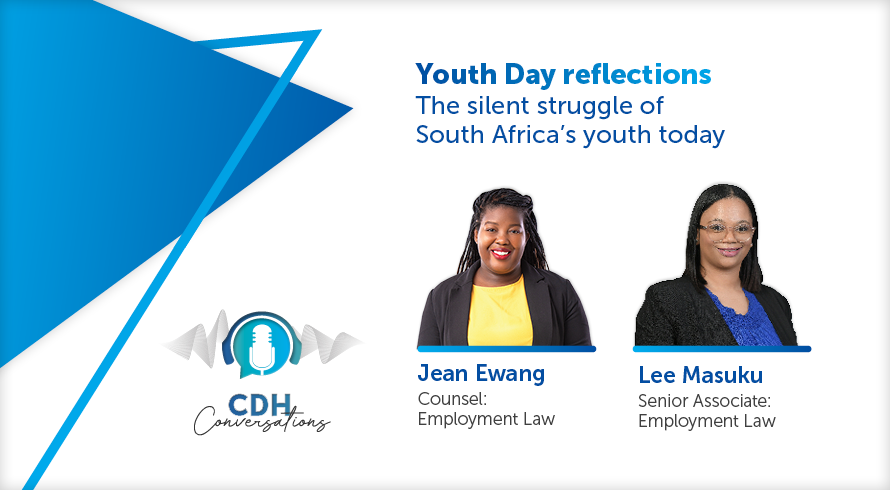A judicial warning to overzealous litigant taxpayers
At a glance
- The Western Cape High Court delivered a punitive judgment against a taxpayer and several other individuals in their capacities as trustees of a trust for abusing court processes by instituting frivolous and vexatious proceedings against the South African Revenue Service (SARS) and other entities.
- The court dismissed the respondents' application to strike out certain material in SARS' affidavit but allowed SARS' application to strike out abusive and defamatory content in the respondents' affidavit. SARS was granted a cost order.
- The court granted a vexatious litigant order against the taxpayer and the other respondents, limiting their right of access to the courts due to their persistent and unreasonable institution of legal proceedings without reasonable grounds. The court also issued a punitive cost order against the respondents.
Facts
In April 2019, SARS instituted an application for an order in terms of the Vexatious Proceedings Act 3 of 1956 (VPA) that no further legal proceedings may be instituted by Mr Gary Walter van der Merwe (GVDM) (in any capacity) or any of the trustees of the Eagle Trust (in their capacities as trustees of the Eagle Trust) without the prior leave of the relevant court.
The events and circumstances that culminated in SARS instituting these proceedings are long and convoluted. Suffice to say that in 2004, SARS investigated and ultimately charged GVDM with various fraud and tax-related offences and this led to a multitude of litigious proceedings (including a second criminal trial for exchange control violations) that had, at the date of judgment in this present matter, not yet been finalised.
Despite its continued efforts, SARS had been unable to recover the tax liability for which GVDM had been assessed. As such, SARS obtained an ex parte preservation order (in terms of section 163 of the Tax Administration Act 28 of 2011 (TAA)) against the assets of GVDM, his daughter Candice (CVDM), Zonnekus Mansion (Pty) Ltd (Zonnekus), a company owned by Eagle Trust and managed by GVDM, and various other related entities. In addition, in 2013, after an inquiry into the tax affairs of the aforementioned parties had been concluded, SARS raised assessments against them.
Instead of pursuing the normal dispute resolution avenues provided for in the TAA, GVDM (and a consortium of the other people related to GVDM and the entities he was involved with) instituted an array of action and application proceedings against SARS and various other parties (for example the liquidators of Zonnekus and Zonnekus’ creditors), including (to name but a few):
- interdictory applications;
- four separate business rescue applications;
- a challenge pertaining to the authority of SARS’ appointed attorneys to act on SARS’ behalf;
- an urgent application for an order declaring Zonnekus’ liquidators’ attorneys in contempt of a preservation order granted in 2014;
- an application for the removal of Zonnekus’ liquidators and an order that the liquidation proceedings be stayed;
- multiple actions against the Minister of Finance and SARS seeking constitutional damages in the amount of R7,6 billion (cumulatively); and
- appeals against most of the unsuccessful applications or actions instituted by them.
In many of these instances, the applications instituted by GVDM et al were dismissed by the relevant courts with punitive cost orders against the applicants.
The order sought by SARS (prohibiting GVDM and the other respondents from instituting any further legal action without leave of the court in question) was accompanied by applications by both SARS and the respondents to strike out certain material contained in the affidavits filed by the opposing party.
Judgment
The first issue addressed by the High Court pertained to the strike out applications that had been filed by each of the parties in the present matter. To this end, it was reiterated that, in terms of Rule 6(15) of the Uniform Rules of Court, the court may (on application) strike out from any affidavit any matter which is scandalous, vexatious or irrelevant in so far as the court has been satisfied that the applicant would be prejudiced if the matter were not struck out. Broadly speaking, included in the scope of matter that is “scandalous, vexatious or irrelevant” are the following:
- allegations that are worded in an abusive or defamatory manner;
- allegations that are worded to convey an intention to harass or annoy; and
- allegations that do not apply to the matter at hand.
After examining each allegedly affronting matter in the relevant affidavits, the court dismissed the respondents’ application to strike out on the basis that none of the content in question in SARS’ affidavit was inadmissible, nor had there been a breach of confidentiality by SARS in disclosing the relevant information as the tax affairs of the respondents were directly relevant to the main issues to be decided in the hearing of the main application. SARS’ application to strike out was, on the other hand, allowed by the court as the relevant content in the respondents’ affidavit was found to be abusive and defamatory, as well as being vexatious in the sense that the content was intended to harass or annoy. On the basis that SARS was successful in its application to strike out, the court granted a cost order in favour of SARS, including the cost of two counsel.
Regard was then had by the High Court to SARS’ application for an order declaring that GVDM and the other respondents are vexatious litigants. The court recognised that such a declaration ultimately limits the right of access to the courts but that such a limitation is justifiable and reasonable having regard to section 36 of the Constitution of South Africa, 1996. To this end, it was held that the purpose of the relevant section of the VPA is to impose a procedural barrier to future litigation on persons who are found to be vexatious litigants in order to avoid the abuse of the judicial system by those persons.
The jurisdictional requirements for a “vexatious litigant” order in terms of the VPA are that:
- legal proceedings must in the past have been instituted, or there is reason to believe that proceedings will in the future be instituted, against the applicant; and
- the court is satisfied that the respondent has persistently instituted legal proceedings without any reasonable grounds for such proceedings (whether or not those proceedings were instituted against the same person or against
different persons).
As it was readily apparent that legal proceedings had previously been instituted by the respondents against SARS, the issue that had to be decided by the court was whether the respondents had been shown to have persistently and without any reasonable grounds instituted the relevant legal proceedings.
To this end, the court considered each of the actions and applications previously brought by the respondents and it was indicated that while reasonable grounds for a select number of the said proceedings did exist, many of the other proceedings (in particular those pertaining to the liquidation of Zonnekus and the ancillary applications thereto) lacked the necessary reasonable grounds to be properly adjudicated.
In particular, the court noted that underlying all of the aforementioned unreasonable applications was GVDM’s opposition to the extent of the tax liabilities raised by SARS against Zonnekus (amounting to more than R42 million). Despite this being the case, GVDM and the other respondents had consistently failed to pursue the dispute resolution procedures provided for by the TAA. On this basis, the court concluded that each of the business rescue applications (and all of the related applications) were patently unwarranted, were instituted without any commercial justification, were doomed to fail, and were set out to achieve the extraneous objective of frustrating and delaying the liquidation of Zonnekus. The court also made direct reference to several other applications brought by the respondents and held that these were equally unmeritorious and unreasonable, were patently vexatious and constituted an abuse of court process.
In coming to its findings regarding the circumstances that constitute an abuse of court process, the court stated that, having regard to the relevant facts and circumstances, this type of abuse generally arises where procedures permitted by the rules of court to facilitate the pursuit of the truth are used for a purpose extraneous to that objective.
Ultimately the court held that the respondents had been shown to have persistently, and without reasonable grounds, repeatedly instituted legal proceedings (whether against SARS or other persons) in a manner that was so persistent and unreasonable as to warrant an order being made that would restrict such litigation in the future. The court therefore granted the vexatious litigant order against GVDM (in his personal capacity and in his capacity as a trustee of the Eagle Trust) and the other respondents (in their capacities as trustees of the Eagle Trust). The court also granted a punitive cost order against the respondents.
Comment
The judgment handed down by the Hight Court in this matter should serve as a cautionary tale to any taxpayer who would attempt to subvert their liability for tax (in respect of which they have been properly assessed) by frustrating the proper fulfilment of the statutory duties imposed on SARS in court.
The vexatious litigant order granted by the court, in conjunction with the punitive cost orders that were made against the respondents, makes it abundantly clear that the improper use of court processes that results in the abuse of the judicial system will not be tolerated. This is especially so in the tax context where specialised dispute resolution avenues have been provided for in Chapter 9 of the TAA in order to effectively resolve most tax-related disputes between SARS and taxpayers without having to burden the court system unnecessarily.
To this end, taxpayers should always ensure that they follow the correct avenues of legal recourse when faced with a dispute with SARS in order to ensure that court processes are not abused.
The information and material published on this website is provided for general purposes only and does not constitute legal advice. We make every effort to ensure that the content is updated regularly and to offer the most current and accurate information. Please consult one of our lawyers on any specific legal problem or matter. We accept no responsibility for any loss or damage, whether direct or consequential, which may arise from reliance on the information contained in these pages. Please refer to our full terms and conditions. Copyright © 2026 Cliffe Dekker Hofmeyr. All rights reserved. For permission to reproduce an article or publication, please contact us cliffedekkerhofmeyr@cdhlegal.com.
Subscribe
We support our clients’ strategic and operational needs by offering innovative, integrated and high quality thought leadership. To stay up to date on the latest legal developments that may potentially impact your business, subscribe to our alerts, seminar and webinar invitations.
Subscribe



